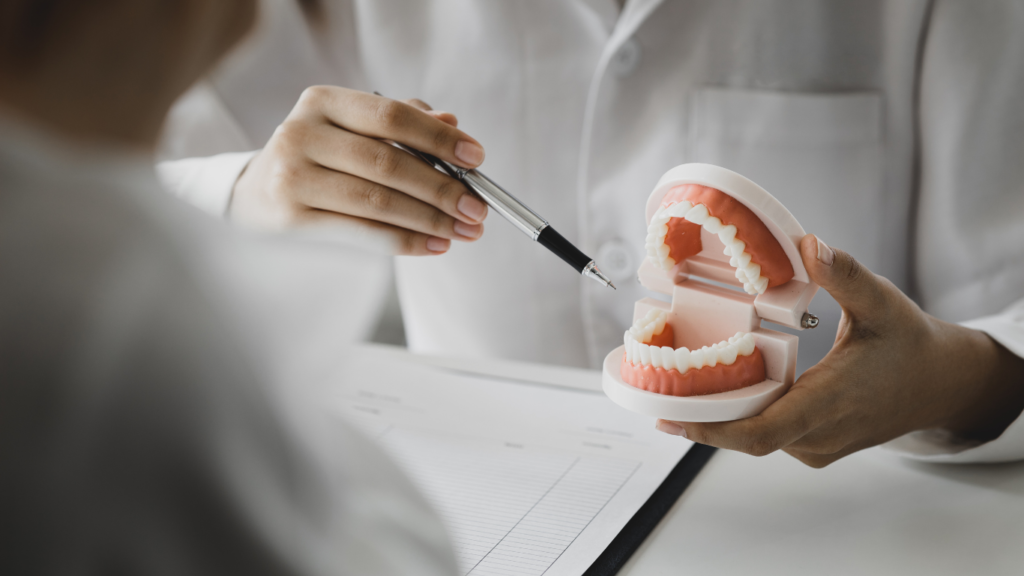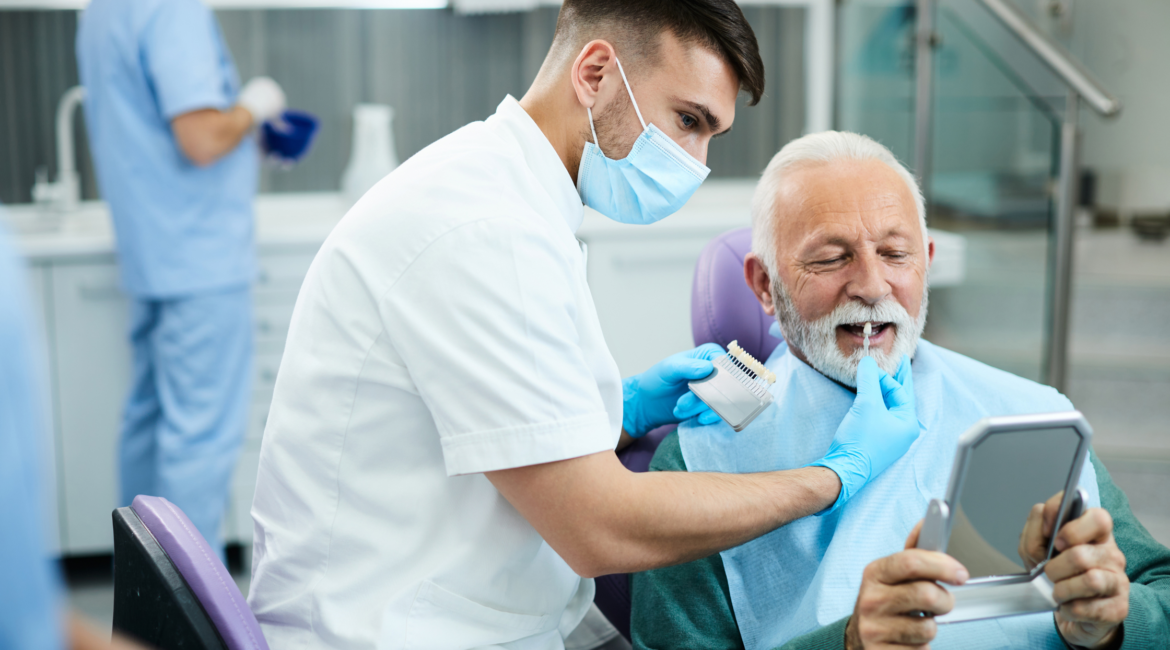Maintaining oral health is essential at every stage of life, but it becomes particularly crucial as we age. Seniors often face unique dental challenges that require special attention.
To help our senior patients and their caregivers, we’ve compiled a list of frequently asked questions about senior dental care.
Why is Dental Care Important for Seniors?
Oral health is directly linked to overall health. Poor dental hygiene can lead to infections, tooth loss, and diseases such as diabetes and heart disease. Regular dental check-ups help prevent these issues and maintain a high quality of life!
What are Common Dental Issues in Seniors?
Gum Disease: Often caused by plaque buildup, leading to bleeding, swelling, and tooth loss if untreated.
Tooth Decay: Increased risk due to receding gums and medication-induced dry mouth.
Tooth Loss: Can affect nutrition and speech, making regular dental visits crucial.
Dry Mouth: Often a side effect of medications, it can lead to decay and gum disease.
Oral Cancer: Regular screenings are important as the risk increases with age.
Tooth sensitivity: Increased tooth sensitivity is common as we age. While it is often caused by receding gums, sometimes the solution can be as simple as switching toothpastes.
How Often Should Seniors Visit the Dentist?
Seniors should visit the dentist at least twice a year for check-ups and cleanings. However, those with ongoing dental issues or conditions may need to see their dentist more frequently.

How Can Seniors Maintain Good Oral Health?
Brush and Floss Daily: Use a soft-bristled toothbrush and fluoride toothpaste.
Use Mouthwash: Antibacterial mouthwash can help reduce plaque and prevent gum disease.
Stay Hydrated: Drink plenty of water to combat dry mouth.
Avoid Tobacco: Smoking increases the risk of gum disease and oral cancer.
Eat a Balanced Diet: Include plenty of fruits, vegetables, and dairy products to strengthen teeth and gums.
What Special Considerations Are There for Dentures?
Clean Daily: Remove and clean dentures daily to prevent infections and bad breath.
Regular Check-ups: Visiting the dentist is essential even if you have lost all your teeth. Oral health encompasses more than just teeth; infections in your gums can spread to your jaw, head, and neck. Additionally, your dentures will need periodic adjustments to ensure a proper fit.
Any looseness can cause discomfort and damage to your oral tissues. As you age, changes in your gums and bone structure may occur, making periodic adjustments to your dentures necessary to maintain a proper fit and avoid complications.
Handle with Care: Dentures are fragile and should be handled carefully to avoid damage.
Can I replace my dentures with implants?
In many cases, dental implants are a viable option, but it largely depends on your jawbone structure and other factors. Sufficient bone density is essential to provide a strong foundation for the implant posts.
Implants might not be suitable for individuals with certain health conditions, such as diabetes or osteoporosis, which can pose additional risks. If you’re considering implants, please let us know, and we’ll evaluate whether they are an appropriate choice for you based on a thorough assessment of your oral health and medical history.
Are there dental treatments that should be avoided for seniors?
Some dental treatments may pose higher risks for seniors, such as dental implants or other oral surgeries. However, each case is unique and needs to be assessed individually.
How Does Medication Affect Oral Health?
Many seniors take medications that can cause dry mouth, which increases the risk of tooth decay and gum disease. Discuss any side effects with your dentist, who may recommend saliva substitutes or other treatments.
What Can Caregivers Do to Help?
Encourage Regular Dental Visits: Assist with scheduling and transportation if necessary.
Monitor Oral Hygiene: Ensure proper brushing and flossing habits are maintained.
Be Aware of Changes: Look for signs of oral discomfort or changes in eating habits that may indicate dental problems.
How can seniors afford dental care?
Seniors have several options for affording dental care. They may be eligible for dental coverage through Medicare or Medicaid, or they can purchase individual dental insurance plans. At Modern Day Dental, we offer no insurance deals to make dental care more accessible.
What can seniors do if they are unable to brush or floss on their own?
Seniors who cannot brush or floss independently can benefit from using oral hygiene aids like electric toothbrushes, floss holders, and water flossers. Additionally, they can seek assistance from a caregiver or a family member to help maintain their oral hygiene routine.

What should seniors look for in a dentist?
Seniors should seek a dentist who has extensive experience with older patients and understands the specific dental challenges they face.
It’s important to find a dentist who is patient and compassionate, taking the time to explain procedures thoroughly and answer any questions. Additionally, look for a dentist who stays informed about the latest treatments and technologies for senior dental care to ensure the best possible outcomes.
Is Invisalign suitable for seniors?
It’s important to highlight that Invisalign is equally effective for mature adults as it is for young people and teens. Over 13.4 million individuals worldwide have used Invisalign to enhance their smiles, with age posing no barrier. In fact, Invisalign, like other orthodontic treatments, offers significant benefits for gum and bone health.
Modern Day Dental – St. Johns, Florida
Proper dental care is vital for seniors to maintain their overall health and quality of life. Regular dental visits, good oral hygiene practices, and awareness of medication side effects can help prevent common dental issues.
If you are seeking expert dental care and are located in or around St. Johns Florida, consult with the experts at Modern Day Dental to help maintain optimal oral health. We use the latest, cutting edge technology to make beneficial dental procedures as smooth, fast and painless as possible.

